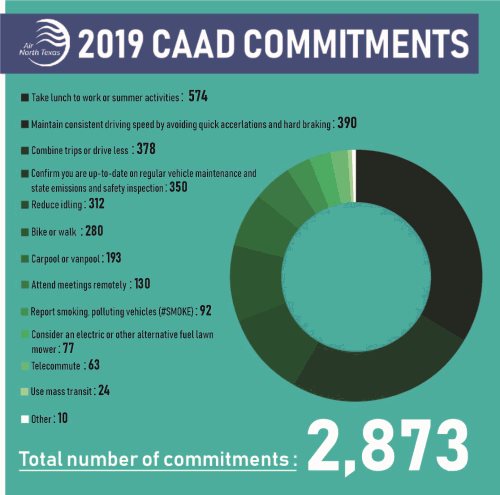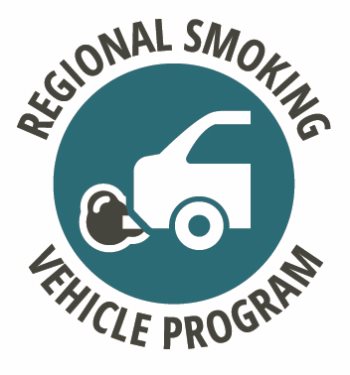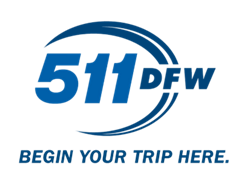Truck lane restrictions could be expanded
The North Central Texas Council of Governments and the Texas Department of Transportation conducted a public hearing in July on
the proposed expansion of lane use restrictions on highway corridors throughout the Dallas-Fort Worth area.
Restrictions prohibiting trucks with three or more axles from using the far left lane of select North Texas highways have been in place in the
region for more than 10 years. A primary goal of these restrictions is to improve safety.
The proposal under consideration would extend the region’s truck lane restrictions along portions of US Highway 75, Interstate Highway 45, IH 35E, IH 635, State Highway 183 and US 67 and IH 30.
The restrictions on trucks would be in place in both directions along:
- US 75 from State Highway 121 South to Collin/Grayson County line
- Interstate Highway 45 from Navarro/Ellis County line to Navarro/Freestone County line
- IH 35E from US 77N to Ellis/Hill County line
- IH 35E from Spur 366 to Corinth Parkway
- SH 183 from IH 35E to Dallas/Tarrant County line
- US 67 from IH 35E to FM 1382
- IH 635 from US 75 to Dallas/Tarrant County line
- IH 30 from SH 205 to Rockwall/Hunt County line
The proposed restrictions would allow the operation of trucks in the prohibited traffic lane only to pass another vehicle, as is the case in
the currently affected corridors. For more information about the public hearing, visit
www.nctcog.org/input.
North Texans commit to more than 2,800 actions to improve AQ
North Texans celebrated Clean Air Action Day on June 21, committing to more than 2,800 actions intended to help improve air quality.
With this annual event, Air North Texas informs residents about the air quality problem and requests individuals, businesses and governments to help improve air quality by pledging to implement different types of clean air strategies into their daily routines.
Currently, nine counties are in nonattainment of the 2015 8-hour ozone National Ambient Air Quality Standard. Clean Air Action Day gives North Texans a chance to actively participate in the improvement of air quality by integrating simple steps into their daily activities.
Residents across the region participated in the event by logging and sharing their specific commitments
to
www.airnorthtexas.org and NCTCOG’s social media pages.
Individuals could select from among more than 20 commitments. The top three were:
- Take lunch to work or summer activities
- Maintain consistent driving speed
- Combine trips or drive less
These three actions, plus others like biking or walking to work, carpooling and taking public transit, all contribute to improving air quality throughout the DFW area. Learn more at
www.airnorthtexas.org.

NCT9-1-1 using Waze data to help first responders
In urban areas, motorists are reporting many roadway incidents in Waze before a 911 call is made. These Waze reports often come several minutes before the 911 call and are equally accurate. By monitoring Waze incident reports, emergency responders can respond to roadway incidents more quickly, potentially saving lives and reducing crash-related congestion.
The North Central Texas Emergency Communications District, which works with NCTCOG, is filtering useful data for 9-1-1 telecommunications as part of an effort to provide dispatchers the latest
information on crashes, construction and other road closures.
This information can be used for a variety of purposes, such as routing first responders around traffic
while responding to an emergency call. The result of this program, which municipalities must opt in to,
is better response and safer roads.
Just as the NCTCOG Transportation Department has embraced technology in its quest to deliver transportation reliability, NCT9-1-1 is a leader for innovation.
For example, it worked with Google to develop better location accuracy, launched a 911 drone program focused on a faster mapping solution and made text-to-911 available throughout the region.
AirCheckTexas leads to 72,000 cleaner vehicles
AirCheckTexas, the program that helped North Texans repair or replace over 72,000 vehicles since 2002, has been officially
closed out. Applications were accepted through April 8, and the program ended June 28.
During the life of the program, 37,843 vehicles were replaced and 34,993 repaired. It was open to motorists who fell within the
income guidelines and whose vehicles also met certain criteria.
With much of the region in nonattainment for ozone pollution, AirCheckTexas was one of many programs allowing residents of the region to participate in the solution.
While administrating the program, NCTCOG relied on innovative fiscal measures to maximize financial return. In addition to
collecting account interest of $2.3 million, a partnership with the program credit card vendor resulted in $1.5 million in rebates
from many repair and replacement transactions.
The Regional Transportation Council has requested the Texas Commission on Environmental Quality allow these interest and
rebate dollars to be used for remaining AirCheckTexas obligations and additional air quality strategies.
7 North Texas bridges awarded $8.8M
NCTCOG will receive an $8.8 million federal grant for a series of projects that will replace, reconstruct, or remove seven bridges in the Dallas-Fort Worth area. The funding comes from the US Department of Transportation’s Infrastructure for Rebuilding America (INFRA) Discretionary Grant Program.
The seven bridges are:
- Loop 12 northbound over Interstate Highway 35 southbound – Dallas County (Replacement)
- IH 35W northbound over IH 35W southbound Alvarado Exit – Johnson County (Removal)
- US 80 eastbound over the East Fork Trinity River – Kaufman County (Reconstruction)
- Farm-to-Market Road 460 over US 80 – Kaufman County (Reconstruction)
- US 180 over Dry Creek – Parker County (Replacement)
- US 287 southbound over Lancaster Avenue – Tarrant County (Replacement)
- US 287 northbound over Carey Street – Tarrant County (Reconstruction)
Apply for clean fleet funding by September 6
NCTCOG held an informational webinar in July to discuss the availability of grant funding for cleaner-burning fleets. Approximately $2 million is available through the Clean Fleets North Texas 2019 Call for Projects. Did you miss the webinar explaining the funding effort? The slides are available at
www.nctcog.org/aqfunding.
Eligible applicants include local governments and private companies that contract with local governments. Eligible activities include the replacement of on-road diesel vehicles and of non-road diesel equipment. The application deadline is September 6.
RSVP allows you to report smoking vehicles

If you spot a vehicle emitting excessive amounts of smoke from the tailpipe, you can help the region breathe easier by
doing something about it.
The Regional Smoking Vehicle Program (RSVP) is one of many efforts aimed at improving air quality in Dallas-Fort Worth.
RSVP is designed to inform and help motorists when their vehicles produce excessive tailpipe smoke and pollutants. By reporting such vehicles, North Texans are able to take an active role in helping improve the region’s air quality.
RSVP covers all 16 counties in the DFW region, which includes ozone pollutant nonattainment counties along with Erath, Hood,
Hunt, Navarro, Palo Pinto, and Somervell. Keep an eye out for the logo and remember, you can easily and anonymously report smoking vehicles by calling 817-704-2522 or visiting
https://www.nctcog.org/trans/quality/air/for-everyone/hevp/rsvp.
Owners of vehicles suspected of emitting excessive pollutants are sent a letter explaining when and where their vehicles were reported, possible causes of the incidents and potential solutions.
511DFW fact sheet available
When you need help from a mapping app or website, you have many choices. The updated 511DFW is one of them. Managed by NCTCOG, 511DFW was recently updated to provide travelers even more information.
NCTCOG has published a fact sheet explaining the system, which contains information on traffic and transit. Additionally, information on weather and the location of electric vehicle charging stations is available to users.

The system is accessible through the web, a free mobile app or by calling 511 on your phone. To learn more, visit
www.nctcog.org/factsheets.